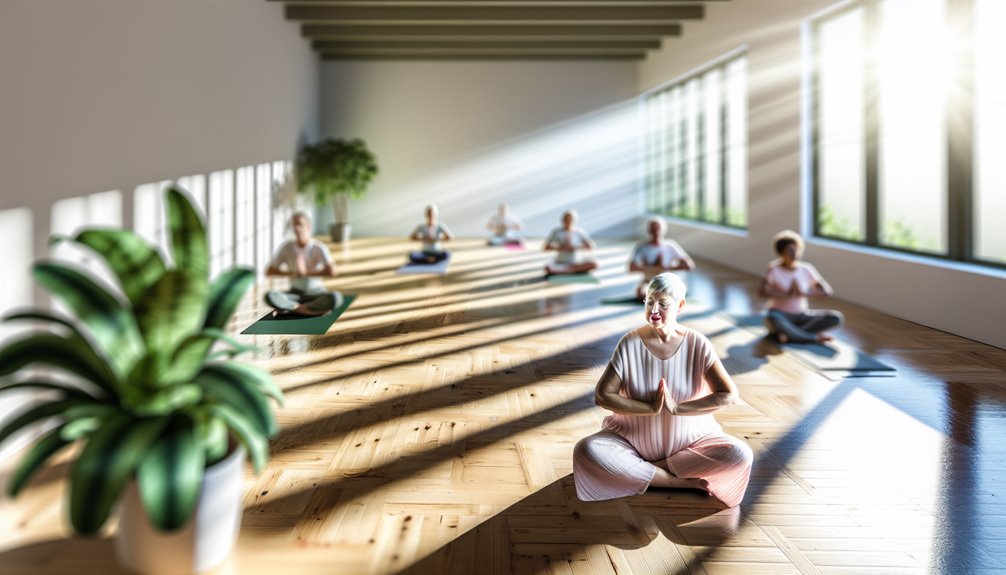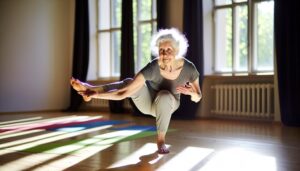You’ve probably heard about the benefits of yoga, but have you considered its impact on brain health, especially for seniors? This practice goes beyond flexibility and relaxation; it can enhance cognitive function and emotional well-being. By understanding the science behind these connections, you might find new ways to support your mental clarity and resilience. So, what specific benefits can yoga offer, and how can you easily incorporate it into your daily routine?
Key Takeaways
- Yoga improves blood flow to the brain, promoting neuroplasticity and cognitive adaptability in seniors.
- Regular practice reduces stress and anxiety, enhancing overall mental clarity and well-being.
- Mindfulness cultivated through yoga encourages present-moment awareness, improving emotional health in older adults.
- Social interaction in yoga classes fosters community support, enhancing mental health through shared experiences.
- Engaging in yoga inspires seniors to prioritize brain health, contributing to a happier, healthier lifestyle.
The Science Behind Yoga and Cognitive Function
As you age, maintaining cognitive function becomes increasingly important, and yoga may offer significant benefits. Research shows that the combination of physical movement, breath control, and mindfulness in yoga can enhance brain health. These practices increase blood flow to the brain, promoting neuroplasticity—the brain’s ability to adapt and reorganize itself. Additionally, yoga reduces stress and anxiety, which can negatively impact cognitive function. By engaging in regular yoga sessions, you’re not just nurturing your body; you’re also cultivating a sharper mind. When you practice yoga, you create a space for mental clarity, which can help you serve others more effectively. As you experience these benefits, you’ll inspire those around you to prioritize their brain health as well, fostering a supportive community.
Benefits of Yoga for Seniors’ Mental Health
While many seniors might associate yoga solely with physical benefits, it’s essential to recognize its profound impact on mental health. Engaging in yoga can significantly reduce stress and anxiety, allowing you to cultivate a sense of calm and balance. This practice encourages mindfulness, helping you stay present and aware, which can enhance your overall emotional well-being.
Yoga also promotes social interaction, creating a supportive community that fosters connection and camaraderie. As you share this experience with others, you’re not just improving your mental health but also uplifting those around you. By dedicating time to yoga, you’re nurturing your mind, enhancing cognitive function, and enriching your relationships—ultimately contributing to a happier, healthier life for yourself and those you care for.
Practical Tips for Incorporating Yoga Into Daily Life
Incorporating yoga into your daily life can be easier than you might think, especially when you start with small, manageable steps. Begin by setting aside just 10 minutes each day for gentle stretches or breathing exercises. You can practice in the morning to set a positive tone or in the evening to unwind. Consider joining a local class or online session to connect with others and feel supported on your journey. Encourage friends or family to join you; it can strengthen bonds and foster a sense of community. Lastly, don’t forget to listen to your body—adapt poses as needed and approach your practice with kindness. By doing this, you’re not just enhancing your well-being, but also inspiring those around you.




